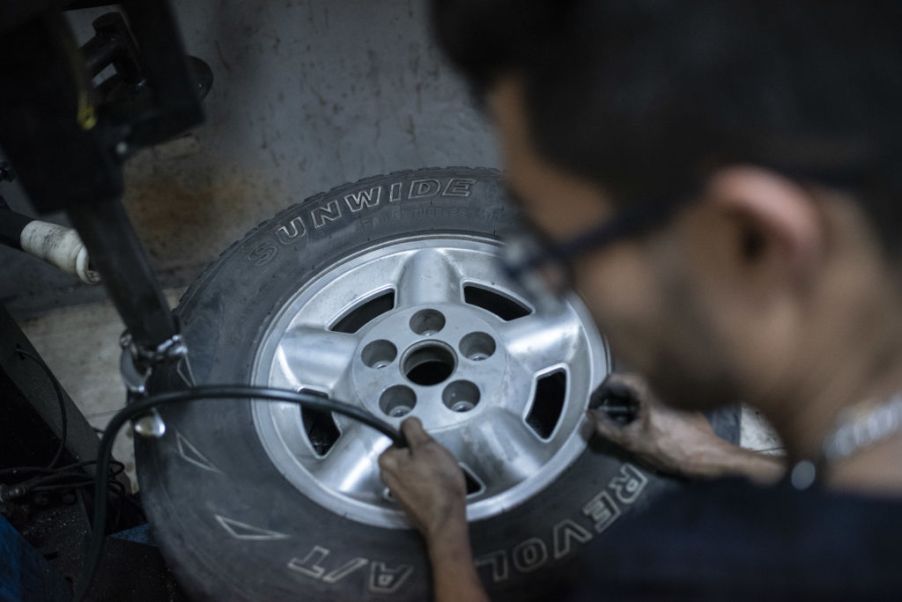
Can Car Tires Pop From Over Inflation?
Driving your car on underinflated tires puts more rubber on the road which can cause your tires to overheat. When this happens, the tread can start to separate, and this condition can be the start of a tire blowout. Just as bad on your tires is keeping the tire pressure too high!
Over-inflated tires are stiffer and have less flexibility. Not only will you feel every dip and bump in the road with overinflated tires, when you hit a curb or a pothole your tire is more likely to suffer damage – including a blowout.
Your car’s manufacturer and the maker of your tires will list a recommended pounds-per-square-inch or PSI of air for your type of tires and vehicle. When you consider the rated PSI of your tires, remember there are also safe low and high limits that give you some wiggle room. But here we consider how easy, or how difficult it would be to over-inflate your car tires to the point where one would burst or pop.
Problems with over-inflated car tires
It is one of the many myths about car tires that you will get more gas mileage from your car by over-inflating the tires. What you may get is a quirky response from some of the car’s safety features like the anti-lock braking system and driver assistance features. These controls are carefully designed to work best when your car’s tires have the right air pressure.
Too much air in a car tire will change its shape. Over-inflated tires tend to bulge in the center. This leaves a smaller area of rubber in contact with the road surface. Expect your tires to wear out quicker down the center if you repeatedly over-inflate them.
Also, this distorted shape of the tire from too much air can decrease traction between the car and the road. You will notice the difference when driving in rain and snow.
How Much Air is Enough?
You may wonder what would happen if you don’t have a pressure gauge on hand and you need to add air to your tire. A tire pressure between 32 and 35 psi is recommended for most passenger cars. You will find the recommended air pressure to fit your vehicle’s drive system and weight listed on the label posted on the inside panel of the driver’s side door. You may also find this information in your car’s owner’s or maintenance manual.
Always check the tire pressure when the car has been off the road for a while and the rubber is cool or cold. Hot tires will have a natural increase of air pressure and will generate inaccurate or inconsistent readings. First thing in the morning or after the car has sat for a few hours is the best time to check the air in your tires. Then, you can add enough to reach the recommended levels.
Can you really burst a car tire?
Tires are built to handle over inflation without bursting – or else you’d hear that incredibly loud popping sound much more often! A popped tire may occur more readily from a combination of factors, and not just by over-inflation.
Riding on cheap or used tires, an extremely hot day, a tire with worn tread, a weakness in the side wall, traveling at a high speeds while going over debris or road obstructions – all of these factors are more likely to cause a tire blowout quicker than a car owner over-inflating their tires.
To cause a car tire to pop, you would likely have to over-inflated the tire by 200 psi or more. This is why car manufacturers don’t even list the number it would take to pop a tire. To burst a one with an air compressor would have to be an intentional act and can be physically dangerous or even life-threatening. Even with a tire that is about to fail for other reasons, the excess air would likely escape through weaknesses in the tire.


